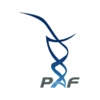Treatments – each individual with propionic acidemia will have an individualized treatment plan
Low protein Diet
One of the most common treatments in Propionic Acidemia is the restriction of natural protein or whole intact protein in foods and formula. The specifics of the diet are followed by a dietician and are monitored with growth, development and labs.
Frequently, not enough protein is taken in through diet because of protein restriction for growth and development, so formulas are used to increase the amount of protein in the diet. This is done through formulas that do not have or have very little valine, isoleucine, threonine, and methionine. The amount in the diet changes with growth, development, labs, and other factors.
There are a number of formulas that are available to drink or go through a feeding tube. In the United States, the formulas can often be obtained from a durable equipment supply company, state programs, and sometimes pharmacies.
Some may have their diet supplemented with one or more of the offending amino acids: valine, isoleucine, methionine, and threonine.
L-Carnitine (Carnitor, levocarnitine) (NOT the same as D-carnitine!)
Levocarntine come as a liquid, a tablet, and a sterile IV form. It is available by prescription, those with Propionic Acidemia often have carnitine deficiency as carnitine binds to propionic acid in the body. Many children stay on the liquid form for an extended period as the tablets are very large. It can cause a “fishy” odor in a person taking it.
Antibiotics (Flagyl/ Methronidazole)
Some individuals take antibiotics, including flagyl to reduce the amount of bacteria in the gut that produces propionic acid. This may be on a daily basis, at a regular interval, or only when ill.
Other medications and supplements
Some of those affected by Propionic Acidemia take other supplements and medications. There are medications and treatmen ts that are currently under clinic trial to be used in those with Propionic Acidemia.
RECORDATI: CARBAGLU receives U.S. FDA Approval for a New Indication to Treat Acute Hyperammonemia Associated with Propionic Acidemia and Methylmalonic AcidemiaCarbaglu Recordati Press Release
Liver Tranplant
There is currently debate on the benefits of liver transplant and it can be discussed with your doctor on a case by case basis. See medical articles on liver transplants.
Disclaimer
The Propionic Acidemia Foundation website is designed for educational purposes only and is not intended to serve as medical advice. The information provided on this site should not be used for diagnosing or treating a health problem or disease. It is not a substitute for professional care. If you suspect that you or your children may have Propionic Acidemia, you should consult your health care provider.
The Propionic Acidemia Foundation does not recommend nor endorse any particular products, companies, or manufacturers.
